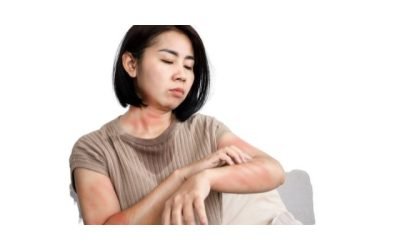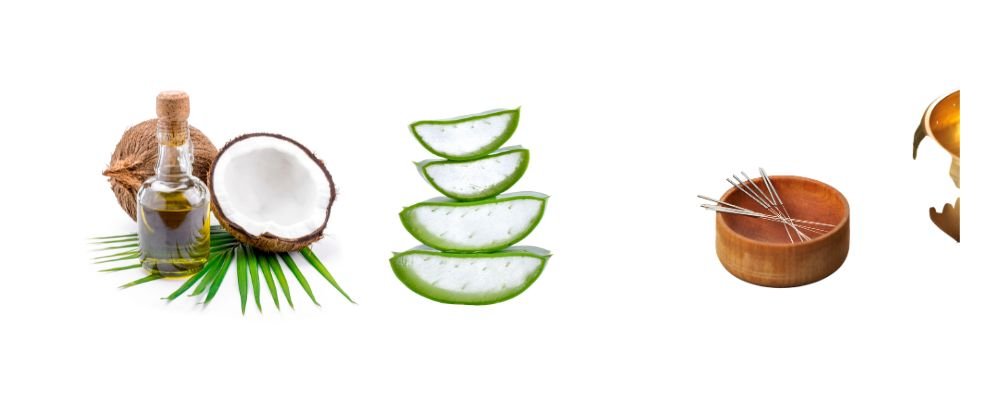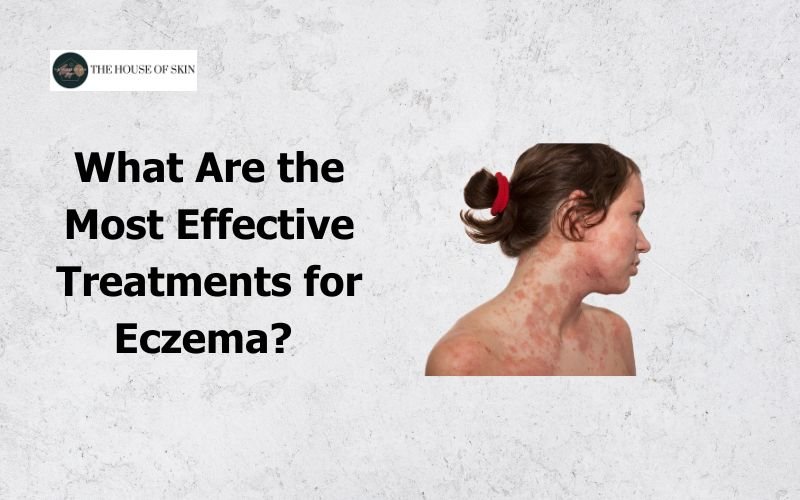Eczema, also known as atopic dermatitis, is a chronic skin condition that causes inflammation, redness, and itching. It affects millions of people worldwide, and finding the right treatment can significantly improve the quality of life for those suffering from this condition. This blog post explores the most effective treatments for eczema, focusing on various options available to manage and alleviate symptoms successfully.
Understanding Eczema
Eczema is characterized by dry, itchy skin and rashes. It can occur anywhere on the body but is commonly found on the face, hands, and inside the elbows and knees. The exact cause of eczema is unknown, but it is believed to be linked to an overactive immune system response to environmental triggers.
Symptoms of Eczema
- Dry, sensitive skin
- Red, inflamed skin
- Severe itching
- Dark colored patches of skin
- Rough, leathery, or scaly patches
- Oozing or crusting
Triggers of Eczema
- Allergens: Pollen, pet dander, dust mites, mold
- Irritants: Soaps, detergents, shampoos, disinfectants
- Food: Dairy products, nuts, wheat, soy
- Environment: Cold, dry weather, high humidity
- Stress: Emotional stress can exacerbate symptoms
Understanding these triggers and symptoms is crucial for managing eczema effectively.
Top Treatments for Eczema

Effective management of eczema often requires a combination of treatments tailored to individual needs. Here are some of the top options for success:
1. Topical Corticosteroids
Topical corticosteroids are a cornerstone in the treatment of eczema. These medications help to reduce inflammation and alleviate itching, providing relief from the symptoms.
How They Work:
Topical corticosteroids work by reducing inflammation in the skin. They suppress the immune system’s response that causes the inflammation, thereby decreasing redness and itching. These medications vary in strength from mild (over-the-counter) to very potent (prescription only).
Types:
- Hydrocortisone (mild)
- Betamethasone (moderate to potent)
- Clobetasol (very potent)
Usage Tips:
- Apply a thin layer to the affected area as directed by a healthcare provider.
- Avoid using on delicate areas like the face or groin unless specifically prescribed.
- Long-term use can cause side effects such as skin thinning; hence, follow medical advice strictly.
2. Moisturizers and Emollients
Keeping the skin well-hydrated is essential in managing eczema. Moisturizers and emollients help to lock in moisture, restore the skin barrier, and prevent flare-ups.
How They Work:
Moisturizers add moisture to the skin and create a protective layer that keeps irritants out and moisture in. Emollients, a type of moisturizer, help soften and smooth the skin by filling in gaps between skin cells.
Types:
- Lotions (light, easily absorbed)
- Creams (heavier, provide a protective barrier)
- Ointments (thickest, best for severe dryness)
Usage Tips:
- Apply immediately after bathing to lock in moisture.
- Use multiple times a day, especially on affected areas.
- Choose products free of fragrances and dyes to avoid irritation.
3. Topical Calcineurin Inhibitors
Topical calcineurin inhibitors are non-steroidal medications used to reduce inflammation and immune response in the skin, particularly useful for sensitive areas where corticosteroids may be too harsh.
How They Work:
These medications inhibit the activity of calcineurin, a protein involved in the activation of T-cells, which are part of the immune system. By blocking this protein, the inflammation and immune response that contribute to eczema symptoms are reduced.
Types:
- Tacrolimus (Protopic)
- Pimecrolimus (Elidel)
Usage Tips:
- Apply as prescribed, usually twice a day.
- Avoid direct sunlight on treated areas, as these medications can make the skin more sensitive to UV rays.
- Monitor for side effects, such as burning or itching at the application site, which usually diminish with continued use.
4. Phototherapy

Phototherapy, also known as light therapy, involves exposing the skin to controlled amounts of natural or artificial UV light. It is often used for moderate to severe eczema that does not respond to topical treatments.
How They Work:
Phototherapy helps to reduce inflammation, decrease itch, and increase the production of vitamin D. It also helps to kill bacteria on the skin that can cause infections.
Types:
- UVB Phototherapy: Uses narrowband UVB light, which is more effective and safer than broadband UVB.
- PUVA Therapy: Combines UVA light with a photosensitizing drug called psoralen to enhance the effectiveness.
Benefits:
- Reduces itching and inflammation.
- Slows down the rapid skin cell production associated with eczema.
- Can be an effective treatment option when other therapies have failed.
Usage Tips:
- Administered under medical supervision, typically in a clinic or hospital setting.
- Requires regular sessions, often 2-3 times a week for several months.
- Side effects can include sunburn-like symptoms and an increased risk of skin cancer with long-term use.
5. Systemic Medications
Systemic medications are used for severe eczema that does not respond to topical treatments. These include oral or injectable drugs that work throughout the body to reduce inflammation and immune response.
Types:
- Oral Corticosteroids: Such as prednisone, used for short-term flare-up control.
- Immunosuppressants: Such as cyclosporine, methotrexate, and mycophenolate mofetil, used for long-term management.
- Biologics: Such as dupilumab (Dupixent), specifically designed to target pathways involved in the inflammatory process of eczema.
Benefits:
- Effective in controlling severe symptoms.
- Helps in reducing the frequency and severity of flare-ups.
Usage Tips:
- Strictly follow medical advice regarding dosage and duration.
- Monitor for potential side effects, including increased risk of infections and organ toxicity.
- Regular blood tests may be required to check for side effects.
6. Antihistamines
Antihistamines are often used to manage the itching associated with eczema, especially at night when itching can disrupt sleep.
How They Work:
Antihistamines block histamine, a chemical released during allergic reactions that causes itching and swelling.
Types:
- Sedating Antihistamines: Such as diphenhydramine (Benadryl), which can help with sleep.
- Non-sedating Antihistamines: Such as cetirizine (Zyrtec) and loratadine (Claritin), which are less likely to cause drowsiness.
Benefits:
- Helps to reduce itching and improve sleep quality.
- Can be particularly useful during acute flare-ups.
Usage Tips:
- Take as directed by a healthcare provider.
- Be aware of potential drowsiness with sedating antihistamines.
- Non-sedating antihistamines are preferable for daytime use to avoid drowsiness.
7. Natural and Alternative Treatments

Some individuals find relief from eczema symptoms using natural or alternative treatments. While these treatments can be beneficial, they should be used with caution and in consultation with a healthcare provider.
Options:
- Coconut Oil: Has moisturizing and anti-inflammatory properties.
- Aloe Vera: Known for its soothing and healing properties, aloe vera can help reduce inflammation and moisturize the skin.
- Probiotics: Beneficial bacteria that can help improve gut health and may influence skin health.
- Acupuncture: A traditional Chinese medicine technique that involves inserting thin needles into specific points on the body to relieve symptoms.
Benefits:
- Moisturizing and anti-inflammatory properties.
- Can be used as adjunctive therapy alongside conventional treatments.
Usage Tips:
- Choose high-quality, natural products without added fragrances or chemicals.
- Perform a patch test before widespread use to ensure no allergic reactions occur.
- Consult with a healthcare provider to ensure these treatments are safe and appropriate for your condition.
Actionable Tips for Managing Eczema
- Identify and Avoid Triggers
- Keep a diary to track flare-ups and potential triggers.
- Avoid known irritants and allergens.
- Adopt a Skincare Routine
- Use gentle, fragrance-free products.
- Moisturize daily, especially after bathing.
- Stay Hydrated and Maintain a Healthy Diet
- Drink plenty of water.
- Eat a balanced diet rich in vitamins and minerals.
- Manage Stress
- Practice relaxation techniques such as yoga and meditation.
- Get adequate sleep and exercise regularly.
- Consult a Healthcare Provider
- Regular check-ups with a dermatologist.
- Discuss any new or worsening symptoms promptly.
Conclusion
Managing eczema effectively requires a comprehensive approach that includes medical treatments, lifestyle changes, and ongoing management strategies. At The House of Skin, we are committed to providing personalized care to help you achieve success in managing your eczema. Remember, consistency and patience are key. With the right treatment plan and support, you can significantly improve your quality of life.



